11 Second Residencies Through Cheap Real Estate Investments
June 4, 2025
The Nomad Capitalist Trifecta Strategy is the perfect plan for those who want to stay globally mobile while establishing bases in certain countries.
If you’re becoming exhausted by the perpetual traveller lifestyle, it’s ideal.
This strategy, which encourages you to pick a few of your favourite places and settle down, will generally involve securing a couple of easy second residencies.
In Montenegro, for example, you can get a residence permit simply by buying a residential property of any value. There are no minimum investment requirements, and plenty of nice places are available for well under US$100,000.
Indeed, one of the easiest ways to establish residency in a country is to invest in real estate, but not all residency and citizenship-by-investment programs are created equal.
You might be able to get cheap real estate and an easy residence permit in a country like Cambodia, but there’s every chance you’re probably looking for a place that’s more developed.
On the other hand, you can get residency by investment in far more liveable countries via processes like the EU’s golden visa programs, but those programs can be expensive and inefficient.
In fact, a growing number of Nomad Capitalists are trying to avoid the EU altogether thanks to its high taxes, onerous regulations and high cost of living.
Unless your heart is set on an EU residency, then you’ll find much better options in emerging countries in Eastern Europe, Latin America and Asia.
For example, why invest hundreds of thousands of Euros in Greece just because it’s an EU country when nearby Montenegro offers residency for a fraction of the price?
If you’re willing to venture off the beaten path, then you may want to consider the residencies we explore in this article.
There are plenty of ‘hidden gems’ around the world with lower investment minimums and shorter application processing times and some of these countries offer the chance to obtain a second passport through naturalisation, too.
As you read through this list, however, keep in mind that the landscape is always changing in the realm of second residencies and citizenships. As a result, some of these numbers may change.
In fact, since this list was originally published in 2017, Georgia upped its minimum investment from US$35,000 to US$100,000.
The world of second residency is always in flux, so we’ll do our best to keep abreast of any changes to these residency-by-investment programs.
In this article, we’ll discuss why you should consider getting residency by investing in cheap real estate, as well as 11 countries where you can do that rather easily.
Benefits of Residency by Real Estate Investment
If you’re looking for a place to live, a place to invest, or a way to boost your tax strategy, getting a second residence by investing in cheap real estate will surely benefit you.
Whether you’re trying to escape high taxes at home or you’re a perpetual traveller looking to slow down, getting a residence permit with an affordable real estate investment is a solid strategy for quickly establishing a home base in another country.
You see, investing in real estate is one of the easiest ways to get a residence permit.
You won’t need to find a job, enrol in school or wait until you’re retired – you can have your residency within months simply by buying an apartment and filling out a bit of paperwork.
Investing in cheap international real estate is also a great way to boost both your tax strategy and investment portfolio.
In many countries, foreign real estate is considered a non-reportable asset, which means that you won’t need to pay tax on it unless you sell or rent out your property.
Additionally, becoming a resident of a tax-friendly country can help you reduce your tax burden by allowing you to become a tax non-resident at home, or if you’re a US citizen, it can help you claim the Foreign Earned Income Exclusion.
Your investment will also help you enhance your wealth by taking part in the growth of another country.
Many of the up-and-coming countries on this list have rising real estate markets that allow you to earn rental yields and appreciation returns that you couldn’t even dream of in more established markets.
Finally, getting an easy second residency can often lead to citizenship.
Many countries allow you to naturalise after living there for a few years, so getting a residence permit can be an important first step in the process of getting a second passport.
11 Easy Second Residencies via Cheap Real Estate Investment
Now that you understand the benefits of getting an easy second residency through cheap real estate, let’s dive into the countries where you can do just that.
While this list isn’t exhaustive, these countries give you some of the best value in the world of residence by investment.
For the most part, these countries are well-developed and quite livable. Best of all, they allow you to become a resident if you make even the smallest of real estate investments.
However, as you’re reading, make sure to keep your goals and long-term strategy in mind.
For instance, not all countries on this list offer a path to citizenship, so if you’re looking to eventually get a second passport, then you may want to rule some of these out.
With that said, here are 11 second-residency and citizenship options available to anyone willing to buy cheap real estate.
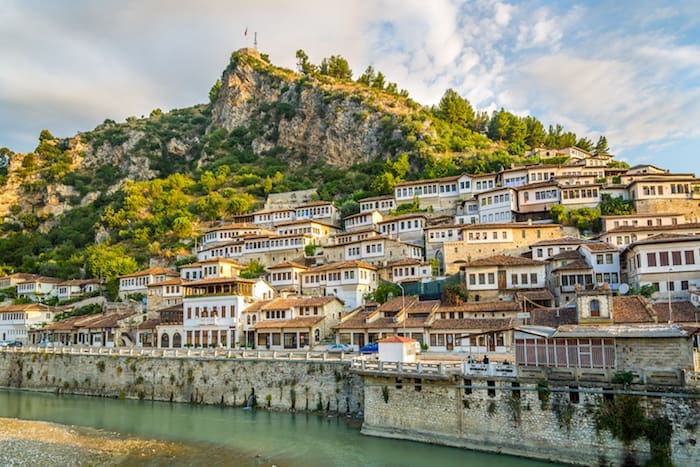
1. Albania
Minimum Investment: US$20,000
Albania offers temporary residency to any real estate investor who purchases a habitable property for their own use.
The good news is that there is a wide array of incredibly cheap condos on Albania’s central and southern coast, with prices starting around €20,000.
However, Albania tends to be more bureaucratic than its neighbours, and you shouldn’t believe rumours that it will somehow join the EU; that’s quite far away – if it’s on the cards at all.
Quite frankly, Albania’s beaches simply don’t compare to those in Montenegro or Croatia, and Albania’s passport is the worst in the region next to Kosovo.
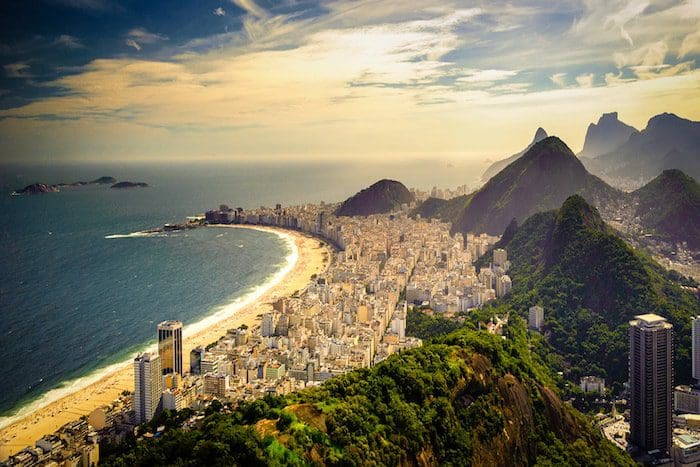
2. Brazil
Minimum Investment: US$122,672
There’s chatter online about Brazil offering an ‘economic citizenship program, ’ but this could not be further from the truth.
Economic citizenship means that you make an investment in exchange for immediate citizenship. Often, it’s actually a donation or at least a really bad investment.
Brazil has no such program; instead, it requires foreigners to live there anywhere from one to five years to be naturalised.
It is possible, however, to earn a permanent visa when making a cheap real estate investment to the tune of 1 million reals (US$175,246) or 700,000 reals (US$122,672) in the north or northeast regions.
The process involves forming a Brazilian company, sending your money in, and then selecting from any number of real estate investment options and making deals as you please.
It’s rather flexible, but it’s also among the most bureaucratic programs on earth. That said, Brazil is a huge country with no shortage of properties to purchase to suit your lifestyle and business needs.
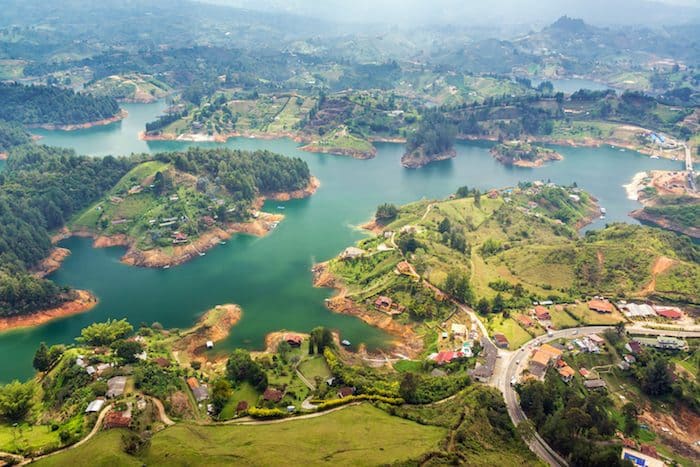
3. Colombia
Minimum Investment: US$34,949
Colombia is one of the world’s hidden gems, and plenty of expat forums and newsletters have discussed buying property there – particularly Medellin real estate.
If you want to get a Colombian residence permit, the minimum investment is about COP 142,350,000 (US$34,949) in a Colombian business. This figure is 100 times the Colombian monthly minimum wage.
However, if you want to invest that little, you’ll likely be buying a parcel of what somebody else is doing, and sadly, many of these investors end up making ridiculous ‘investments’ at the hands of fellow expats selling overpriced property or franchise shares.
So, if you plan on going it alone, you may prefer to buy property in your own name in a place like Bogota or Medellin.
Colombia offers a lot of promise if you know what you’re doing, and investors can get instant permanent residency when buying COP 498,225,000 (US$122,350) worth of real estate.
That residency can then lead to citizenship after five years, provided you spend one day in the country every six months.
The Colombian passport is rather good since it now offers visa-free travel to Europe, as well as all of Latin America. If you’re willing to learn a little Spanish and put in the time to manage your property investments in a bureaucratic country, it’s worth considering.
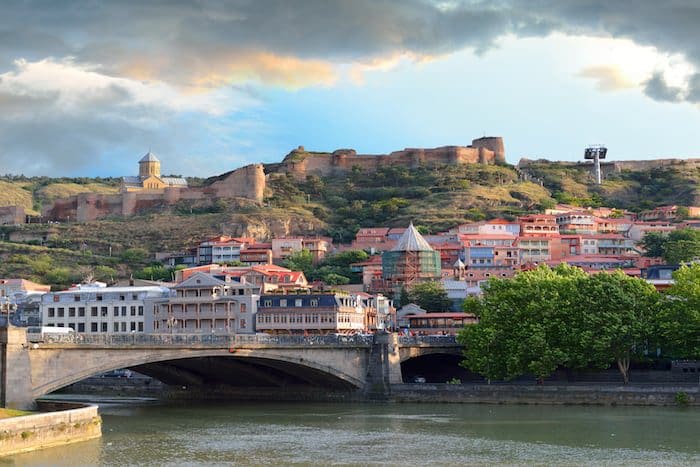
4. Georgia
Minimum Investment: US$100,000
Georgia’s investment minimum has nearly tripled over the past two years from just US$35,000 to US$100,000. That amount will get you a one-year residence permit. A five-year residence requires an investment of US$300,000.
You can get quite a lot for your money, considering how cheap real estate is in the country. You can also get a sizable return on your investment – especially considering that it has no property taxes and a low rental income tax.
Getting a one-year residence permit through real estate here actually involves a few more steps than residency for someone hiring local workers.
The program has slowed down in recent years and is not the golden opportunity it once was.
If you do manage to get residency through a cheap real estate investment in Georgia, the upkeep on your residence permit is minimal, and citizenship is possible after ten years.
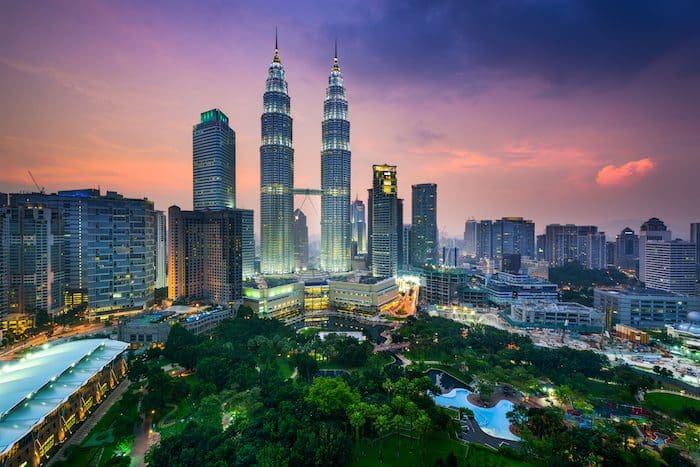
5. Malaysia
Minimum Investment: US$70,000
While the property market is somewhat saturated in Malaysia, a weaker ringgit makes it an interesting lifestyle investment destination.
Malaysia doesn’t offer a real estate residency per se – nor is it possible to become a Malaysian citizen – but there is a ‘workaround’ of sorts.
Malaysia’s MM2H program allows anyone of any age to ‘retire’ to Malaysia and obtain a residence permit by making a deposit into a Malaysian bank account.
These deposits can be as low as US$32,000 if you’re over 50 and applying in certain Special Economic Zones.
If you want to live in major parts of Malaysia like Penang or Kuala Lumpur, you’ll need to apply for the Silver, Gold or Platinum MM2H programs, which have larger deposit requirements.
A key stipulation of all MM2H programs is that you’ll need to buy a residential property in Malaysia, and you won’t be able to sell it for at least 10 years.
Your bank deposit can’t be withdrawn for as long as your residence permit is valid, although you can withdraw half of it after one year to help fund your property purchase.
You’ll be limited to buying real estate above a certain price threshold, depending on your choice of program. As such, there are limits on buying real estate, meaning your ‘cheap’ investment will cost you just a little bit more in practice.
The program offers many of the lifestyle benefits of European countries with better weather and a friendlier territorial tax system.

6. Montenegro
Minimum Investment: US$30,000
Montenegro is relatively easy to deal with but does make you cross your t’s and dot your i’s.
The country is among the most friendly to investors in Europe, but having the right support on the ground in Montenegro is essential.
Montenegro’s residency can be obtained in a similar fashion to neighbouring Serbia, which you can read about below.
Basically, you need to buy any habitable property, and you should have at least 12 square meters of space for each person in your family (if they also plan to get a residence permit).
A decent, small apartment near the sea will cost anywhere from US$30,000 to US$75,000, although it will likely need a little renovation work at these prices.
New projects targeting the jet set can start in the mid-six figures, with prices going up from there.
Once you have the title to a property in Montenegro, you can go through the procedures to obtain a one-year temporary residence permit.
However, while business residency can lead to citizenship after ten years, real estate residency never leads to citizenship – don’t believe anyone who tells you otherwise.
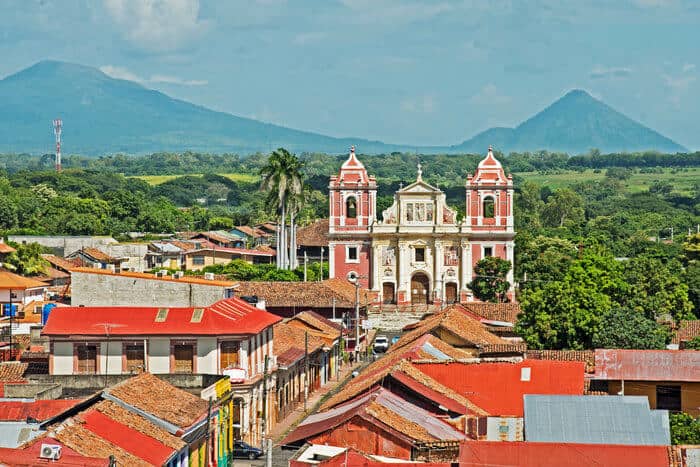
7. Nicaragua
Minimum Investment: US$30,000
Like many of its Latin American neighbours, Nicaragua offers residence permits to foreigners willing to invest in a local business.
As one of the most affordable countries in Central America, it’s no wonder that this residency-by-investment program is becoming increasingly popular among expats.
You can find out more about getting a Nicaraguan residence permit here, but to summarise, you can get Nicaraguan residency by investing US$30,000 (or more, depending on how you structure your investment) in an employment-generating business.
Real estate or land projects are acceptable if they are part of a business project. Simply buying private property does not qualify.
Given that the cost of living in Nicaragua is so low, you can find excellent properties in the country for remarkably little money.
However, while getting residency in Nicaragua is more straightforward than in many of its neighbours, you’ll still have to deal with some bureaucracy, and you’ll likely need a lawyer to help you secure your residence permit.
Nicaragua also requires you to stay in the country for at least six months out of the year to maintain your residency unless you have investments in the country worth at least US$75,000 or you need to leave for medical reasons.
While citizenship by naturalisation is possible after four years of permanent residency, it often takes longer.
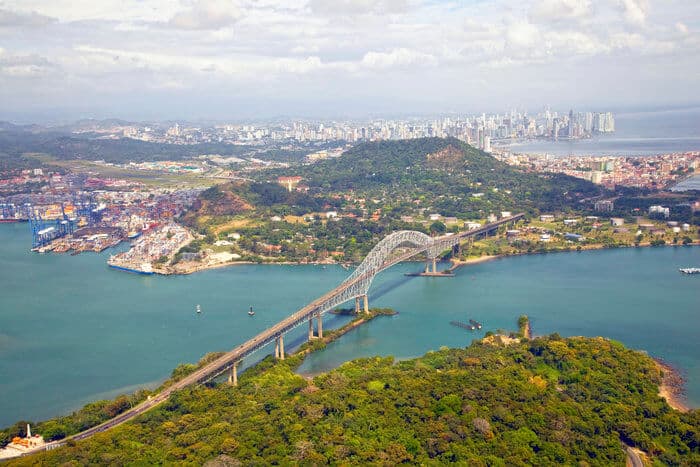
8. Panama
Minimum Investment: US$5,000 (Friendly Nations) or US$60,000 (Other Residency Programs)
If you’re searching for a nomad-friendly second residency, look no further than Panama. This small Latin American country’s territorial tax system, good offshore banking options and low cost of living make it an excellent place to get a second residency.
And to maintain your Panamanian residence card, you only need to visit the country for a couple of days per year.
Panama offers a wide variety of residency options, including the Friendly Nations Visa, which allows citizens of certain countries to become Panamanian residents by depositing US$5,000 in a bank account and creating a Panamanian company.
However, if you don’t qualify for the Friendly Nations Visa, you can still become a Panamanian resident by investing US$60,000 in agricultural land or companies, US$100,000 in land for reforestation projects, US$160,000 in a Panamanian company or US$300,000 in a term deposit account.
The only drawback to Panama is that it isn’t your best option for getting a second citizenship. Panama does not allow dual citizenship.
And while you can technically get your Panamanian passport in as little as five years, that’s not always the case. In fact, we know people who have been living in Panama for 15 years and still have not been able to get a Panamanian passport.
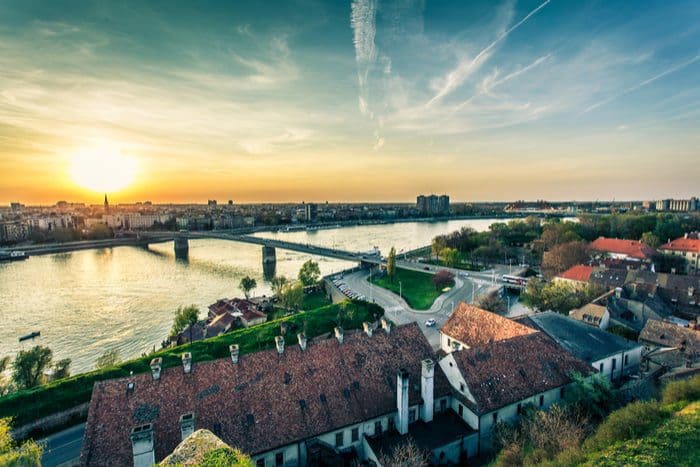
9. Serbia
Minimum Investment: US$0
Serbian residency is straightforward: buy a property and get a residence card.
That said, getting your Serbian residence permit involves about 27 steps, from buying health insurance to obtaining the right kind of title, but if you know what you’re doing, the process is relatively quick.
Technically, there is no minimum investment to obtain Serbian residency. You can invest as little as US$1,000 in real estate and be approved.
There is a catch, however: you need to live in the property for at least one month with few breaks while the police check your presence there.
While it’s technically possible to buy homes in northern Serbia for US$5,000 to US$10,000, you would need to spend enough time there for the neighbours to recognise you, which might not be ideal.
Given that you’ll actually have to live there for a good amount of time, you’ll likely want to move to a larger city like Belgrade, where decent properties start at US$50,000 and desirable ones typically go for at least US$100,000.
Another issue to be aware of, however, is that while you may obtain Serbian citizenship after five years of real estate ownership, you’re supposed to live in the country for the majority of that time.
Belgrade is an excellent place to live, but don’t count on a passport if you’re living nomadically.
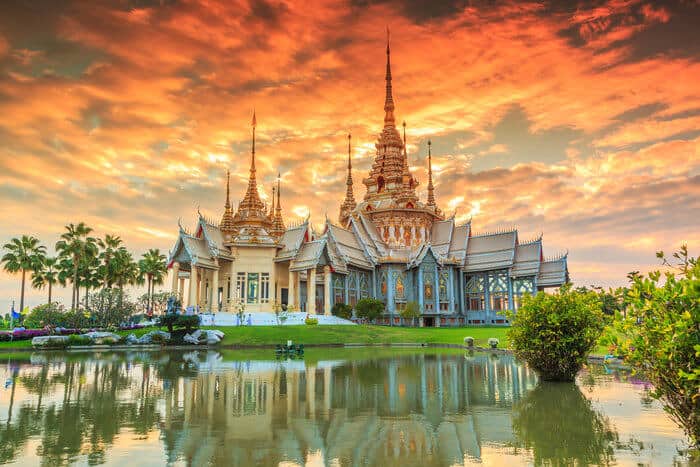
10. Thailand
Minimum Investment: US$300,000
Although it’s one of the more expensive residency-by-investment programs on this list, we decided to add Thailand due to its popularity among the Nomad community.
Thailand also has one of the most straightforward real estate residence programs in Asia – a region that’s known for making it difficult for foreigners to buy property.
To get a Thai residence permit, you simply need to invest 10 million Thai baht – roughly equivalent to US$300,000 – in real estate. Once you do, you can get a long-term residence card.
You can also choose from other options, like bank deposits or government bonds, but if you’re looking for any kind of return on your real estate investment, then buying a condo or apartment is going to be your best bet.
However, as with most Asian countries, there are restrictions on the types of properties that you can actually buy. In Thailand, foreigners can only buy new real estate to qualify for residence by investment.
While this does limit your options, you can find plenty of new condos in cities like Bangkok and Chiang Mai.
Returns here aren’t going to be as high as in neighbouring Cambodia, but you can still find good investment opportunities – especially if you’re willing to look at up-and-coming areas.
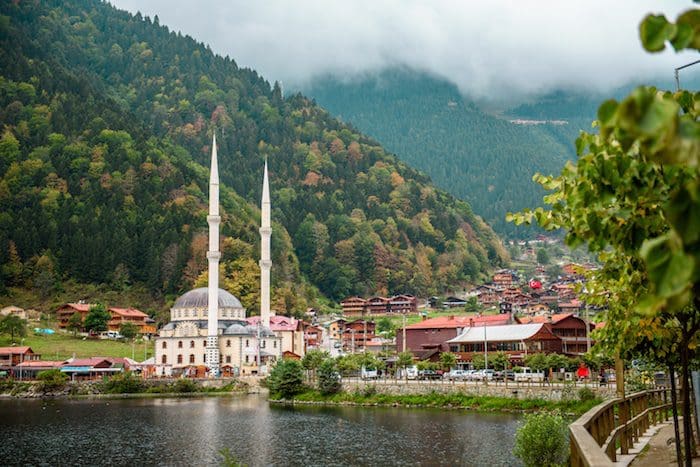
11. Turkey
Minimum Investment: US$200,000 (Residency) or US$400,000 (Citizenship)
Turkey was long the investment darling of wealthy Middle Easterners who viewed it as a secular Muslim safe haven for their cash. Despite a string of terror attacks, the Turkish lira held up well and property prices remained steady.
That couldn’t go on forever, though, and now the Turkish lira, after a period of freefall, is at an all-time low.
Noting this, the Turkish government introduced a citizenship-by-investment program that allows anyone willing to invest US$400,000 in real estate to obtain immediate citizenship so long as they hold the investment for three years or more.
According to the Turkish Airlines in-flight magazine, that could be as simple as buying a condo at SeaPearl in Istanbul, as indicated by the heading, ‘Get a Turkish Passport!’
You can buy any habitable property or properties. You can check out our Turkey real estate guide to learn about our favourite areas in which to buy properties.
This program has become much more attractive in recent years and is one of the better bargains when it comes to citizenship by investment. You can learn more about how to buy a Turkish passport in our ultimate guide.
Alternatively, you’ll be eligible for permanent residency in Turkey if you buy real estate worth at least $US200,000.
Residence by Investment in Real Estate: FAQs
It depends on your personal tastes and what you’re looking for. However, if you compare the overall quality of life offered with the minimum amount you have to invest, it’s difficult to look past the likes of Georgia, Malaysia and Montenegro.
With an EU residency, you get visa-free access to the Schengen Area, which gives you a lot of options and can be highly advantageous for business owners. The quality of life in EU countries is generally very good, thanks in part to the economic stability that the European Union provides.
Yes, there are plenty of Asian countries that offer residency if you invest in local real estate, including Thailand, Malaysia and Cambodia.
Most of the countries offering citizenship by investment have a path for foreigners who want to buy real estate in their country. This includes Turkey, Egypt, Vanuatu and several Caribbean nations.
Turkey is the only European nation that directly gives you access to citizenship by investing in real estate, although other nations may allow you to get citizenship by naturalisation after a few years.
Get Your Real Estate Residency While You Can
Many of the countries on this list have hiked up the minimum purchase amounts for real estate investors to qualify for residency in recent years.
Georgia almost tripled its investment threshold, although its US$100,000 baseline is still one of the lowest around. Turkey introduced a US$200,000 threshold across all cities in 2023.
The way things are going, you can bet that this trend will continue. That’s the reality of inflation and simple supply and demand economics.
As more foreigners invest in property, these countries will feel more pressure to increase their price limits. That’s why the terms of these residency-by-real-estate deals are changing all the time.
There are also countries like Portugal that have removed real estate investment as an option from their golden visa program altogether.
That’s why we encourage people with the Nomad Capitalist mindset to make their moves now before the deals they want disappear or get more expensive.
This applies to those looking for second passports as well as second residencies.
We’ve helped thousands of wealthy entrepreneurs and investors go where they’re treated best, whether that’s by moving their business offshore, relocating to a more tax-friendly country or getting a second citizenship. Learn more about how our holistic Nomad Capitalist plans can help you.
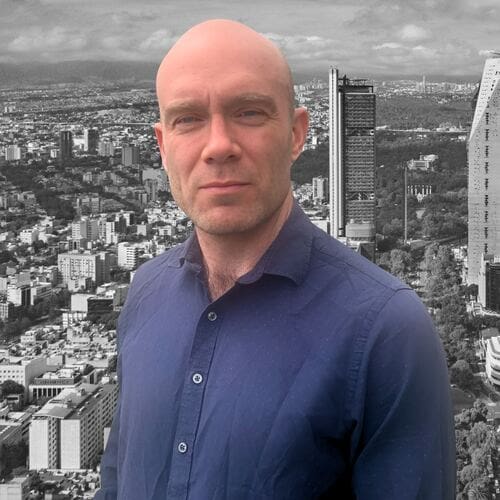


Does Puerto Rico Pay Taxes to the US?
It’s a common question and one that often fuels confusion, debate, and a fair share of misinformation – Do residents of Puerto Rico actually pay US federal taxes? When most people think of US tax obligations, they naturally assume they apply uniformly across all US citizens. But when it comes to Puerto Rico, things are […]
Read more

Zug Canton Taxes: The Ultimate Destination for Wealth Management in Switzerland
Switzerland’s global reputation is built not just on stunning views of Alpine peaks and serene lakes but also on a foundation of exceptional quality of life, world-class infrastructure and investor-friendly tax policies. The results speak for themselves: efficient public transport seamlessly links cities and villages; the standard of living regularly ranks among the highest in […]
Read more

How Smart Investors Use Venture Capital to Build Wealth
Big companies like Google, Amazon, Facebook and Apple all started out as bold ideas backed by venture capital. Decades later, the same firms are household names, as familiar to most people as electricity, the internet, or the telephone. But hindsight is a fickle friend. The truth is, it wasn’t always so obvious they’d succeed. These […]
Read more




